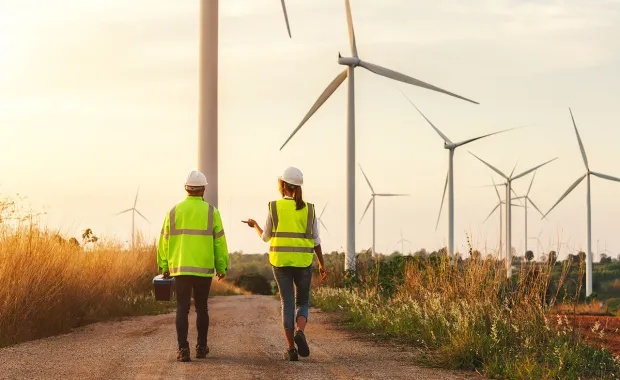In recent years Environmental, Social and governance (ESG) policies have been rightly pushed to the top of the agenda for governments and businesses alike. From natural disasters to increasing social inequity, the need for change is becoming more and more apparent.
Considering the chronic threat of climate change has not gone away. The fact that according to a recent McKinsey report ‘ESG Momentum: Seven reported traits that set organizations apart’, a global survey of 1,100 respondents in over 90 countries found that ‘more than nine in ten respondents say that ESG subjects are on their organisation's agenda is unsurprising. We are seeing ever-increasing coverage of the effects our changing climate is having on our planet, from irreversible damage to ecosystems to displacing people from their homes. These effects are being felt worldwide, with natural disasters becoming seasonal occurrences in place of ‘one-off’ events.
All this with the near-certain prediction that 2023 will be the warmest year on record, and as of October 2023 was 1.43C above the pre-industrial average.
The Global Stocktake
That is why the 28th UN Climate Change Conference Of the Parties (COP28) is a pivotal moment with the predictions that temperatures will continue to rise above pre-industrial levels, and the impacts will become far more severe. The overarching goal of the Paris Agreement in 2015 was to prevent the worst effects of climate change by limiting global warming to 1.5 oC. By any measure, that agreement was a historic one and one of which every nation can be proud. This year COP28 will present the first ever ‘Global Stocktake’ an assessment of progress made toward mitigating global warming since that agreement.
The increasing effects of climate change and the results of the Global Stocktake demonstrate that we need to be taking much stronger action. Ultimately, there is now an expectation from investors, customers and employees that organisations will act in a responsible environmental manner, both globally and with regard to the local communities in which they operate. To act otherwise is reckless, directly impacting our planet and businesses, from their share price and sales to recruiting the best talent.
Transparent reporting
While 'greenwashing' has led to people mistrusting claims of climate leadership, the growing obligations for open data and reporting through initiatives such as The Task Force on Climate-related Financial Disclosures (TCFD) enable people to judge whether organisations' claims are true. Those who can't adequately evidence their claims are facing a real reputational risk. Ever-improving access to data is enabling results to be analysed and performance objectively judged. Gone are the days of paying lip service to sustainability efforts. Reporting on sustainability is becoming as embedded as reporting on the gender pay gap and modern slavery. But what can companies do?
The biggest challenge organisations will have to overcome is integrating practices into day-to-day operations; this can be tricky for those who haven’t invested adequately in realistic sustainability programmes. In my personal experience, the good news is employees want to get involved and are motivated by a sense of mission. Furthermore, prospective candidates are increasingly asking about CGI’s commitment to being a responsible business, so it is in an organisation’s best interest to be able to answer this positively and honestly.
Creating a responsible business
Organisations also need to recognise that externally they are a part of their client's supply chain, and many clients are looking to their supply chains to support their own actions on climate and accelerate their journeys to becoming net zero.
But how can companies transform their structure and keep employees, customers and communities happy? While there isn’t a one size fits all solution there are several critical steps they can take.
Businesses are then faced with only one viable course of action: to respond sincerely and be as sustainable as possible. Attempting to give the appearance of a sustainable organisation without investing and progressing sustainability internally is greenwashing; consumers and clients can smell it a mile off. Responsible businesses understand there is an irreparable reputational risk for those who persist with paying lip service to their obligations to the planet.
Supporting a green economy
Ultimately the opportunities presented by the green economy are extraordinary. And the risks to those who fail to take their responsibilities seriously are immense. According to the Carbon Disclosure Project, 215 of the world's biggest companies have valued their climate risks at $1 trillion. While this figure was published in 2019, we can only assume it has increased. Yet, those same companies have the potential to gain twice that amount by moving to green economies. And it is the technology industry that has a major role to play in helping to develop IT innovations that can address climate change and reduce its own significant environmental impact. Technologies from AI to quantum computing, the opportunities to use technology to do good, are enormous. We need to bring meaning back to corporate responsibility and develop a corporate conscience. A living, breathing structure of support that demands we play our collective part in protecting our ecosystems.
We need to commit to tangible actions to ensure businesses don’t risk being confined to the wrong side of history. We have until 2030 to halve global emissions if we are to keep the 1.5oC limit alive. So, the world must grasp this moment at COP28 and collectively step up and deliver.






